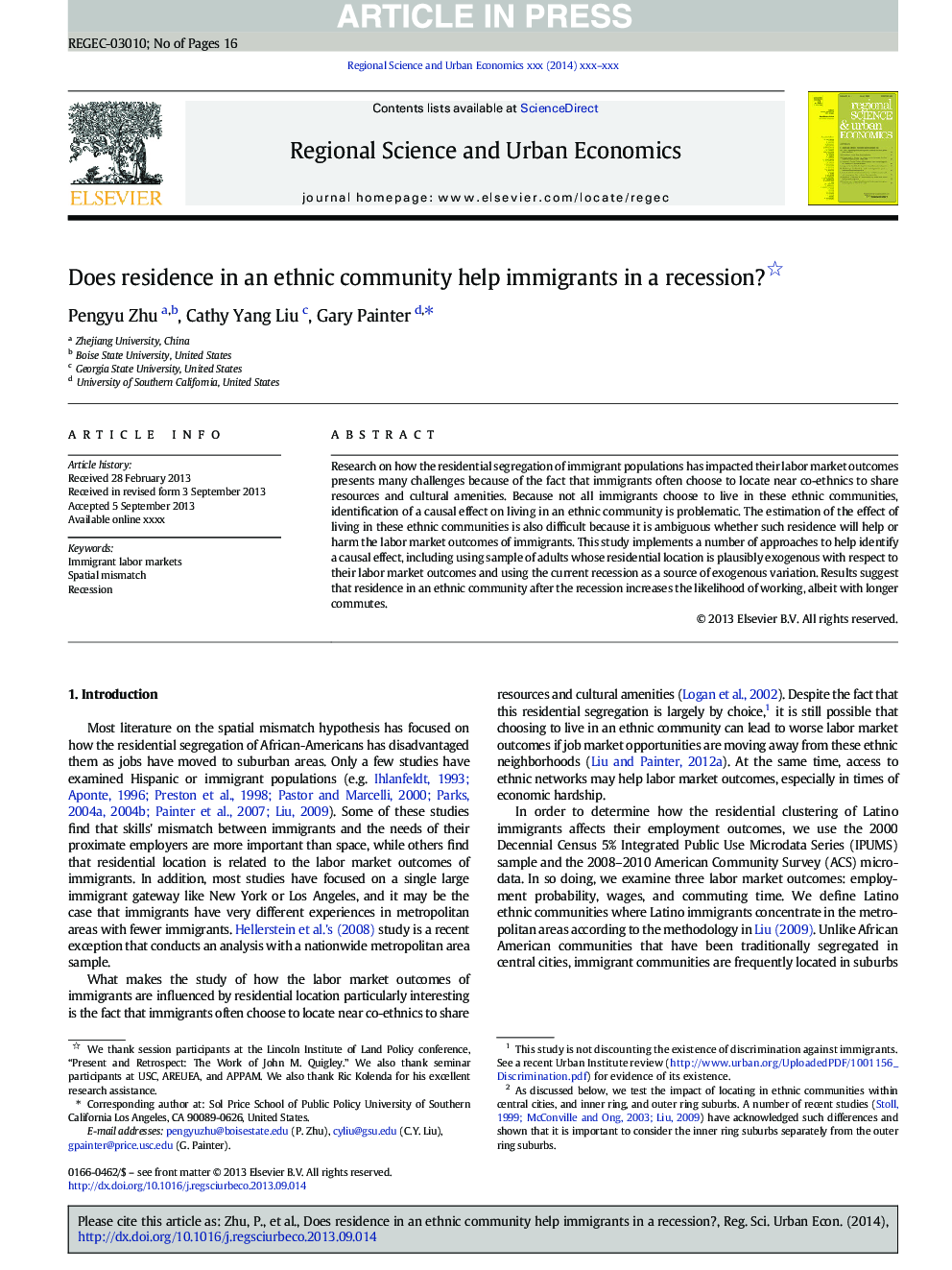| Article ID | Journal | Published Year | Pages | File Type |
|---|---|---|---|---|
| 7383998 | Regional Science and Urban Economics | 2014 | 16 Pages |
Abstract
Research on how the residential segregation of immigrant populations has impacted their labor market outcomes presents many challenges because of the fact that immigrants often choose to locate near co-ethnics to share resources and cultural amenities. Because not all immigrants choose to live in these ethnic communities, identification of a causal effect on living in an ethnic community is problematic. The estimation of the effect of living in these ethnic communities is also difficult because it is ambiguous whether such residence will help or harm the labor market outcomes of immigrants. This study implements a number of approaches to help identify a causal effect, including using sample of adults whose residential location is plausibly exogenous with respect to their labor market outcomes and using the current recession as a source of exogenous variation. Results suggest that residence in an ethnic community after the recession increases the likelihood of working, albeit with longer commutes.
Keywords
Related Topics
Social Sciences and Humanities
Economics, Econometrics and Finance
Economics and Econometrics
Authors
Pengyu Zhu, Cathy Yang Liu, Gary Painter,
